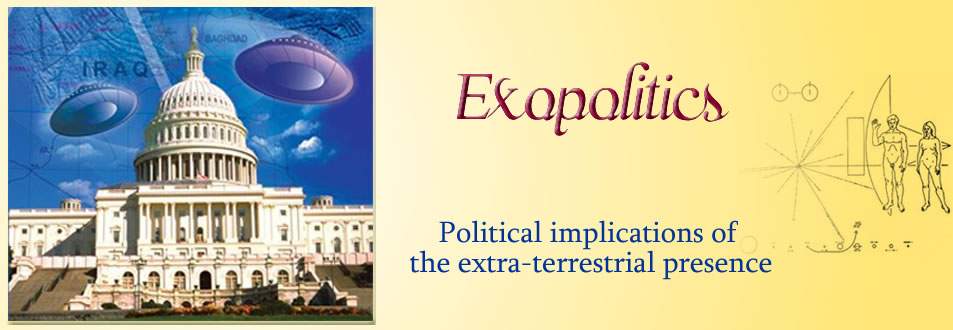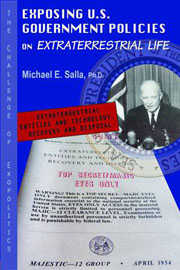Mystery behind initial report of UN Liaison for Extraterrestrial First Contact
 |
| Kavli Royal Society International Centre. Venue of Oct 4-5 conference: "Towards a scientific and societal agenda on extra-terrestrial life." Photo: Royal Society |
On Sept 26, I reported on a breaking story that at an upcoming Royal Society conference, the head of the United Nations Office of Outer Space Affairs (UNOOSA), Dr Mazlan Othman, was to reveal how the UN was preparing to appoint her to be the First Contact liaison with extraterrestrial life. The story was first reported by Jonathan Leake, the Science Editor for The Sunday Times, and was picked up my multiple international mainstream media sources including the Sunday Telegraph and The Australian. The Guardian newspaper was eventually able to get in touch by email with Othman to confirm Leake's story and she replied: "It sounds really cool but I have to deny it." In addition to Othman's email, when business opened on Monday, Fox News was able to get in touch with Jamshid Gaziyev, a UN spokesperson who described the story as "nonsense." The question that remains to be answered is why did the Science Editor of a major British newspaper write about the UN appointing a First Contact liaison with extraterrestrials if there was no substance to it?
First let's begin with what Leake wrote in his September 26 story, "If Mars attacks, she's our leader":
… the UN is set to select an obscure Malaysian astrophysicist who is head of its little-known Office for Outer Space Affairs (Unoosa). Mazlan Othman will describe her potential new role next week at a scientific conference at the Royal Society's Kavli conference centre in Buckinghamshire.
The conference Leake is referring to is titled: "Towards a scientific and societal agenda on extra-terrestrial life" scheduled to take place on October 4-5. The conference webpage says: "With a mix of invited talks and panel debates, we particularly look into the detection of life, the communication with potential extra-terrestrial civilizations, the implications for the future of humanity, and the political processes that are required." This is what Leake went on to say about what Othman was set to announce at the conference:
She will tell delegates that the recent discovery of hundreds of planets around other stars has made the detection of extraterrestrial life more likely than ever before - and that means the UN must be ready to co-ordinate humanity's response to any "first contact".
What was the basis for Leake's comments about Othman's upcoming talk? This is what he wrote:
The Sunday Times has obtained a recording of a talk Othman gave recently to fellow scientists in which she said: "The continued search for extraterrestrial communication, by several entities, sustains the hope that some day humankind will receive signals from extraterrestrials. When we do, we should have in place a coordinated response that takes into account all the sensitivities related to the subject. The UN is a ready-made mechanism for such co-ordination."
From the recorded talk, it's safe to conclude that Othman believes that the UN ought to "have in place a coordinated response" to the discovery of extraterrestrial life. Leake goes on to write:
As director of Unoosa, she has developed policies on issues raised by advances in space technology, such as how humanity should respond to the discovery of asteroids and comets found to be on a collision course with Earth. The same thinking lies behind her proposals for dealing with the discovery of alien life.
So what proposals is Leake referring to here? He doesn't explain what these are and how he learned of them, but he nevertheless elaborates on what the UN is planning.
Her plans to make her department the co-ordinating body for dealing with alien encounters will be debated by UN scientific advisory committees and should eventually reach the body's general assembly.
In contrast, according to Gaziyev, the UN spokesperson, Othman's forthcoming conference presentation would: "discuss the problems posed by "space debris mitigation, near-Earth objects (asteroids) and the coordination mechanism for the use of space technology in the United Nations system." That's surprising given the theme of the conference and the panel Othman was set to appear on: "Extra-terrestrial life and arising political issues for the UN agenda." It is sensible given the alleged recorded talk by Othman that Leake said the Sunday Times has and he cited, that Othman is at the very least interested in the UN having "in place a coordinated response" to the discovery of extraterrestrial life. Is the UN playing damage control on what Othman was likely to discuss at a Royal Society conference addressing exo-political issues confronting the UN with the inevitable discovery of extraterrestrial life?
Of course, we know now that a UN spokesperson dismissed the First Contact ET liaison story as nonsense, as did Othman. So the question is why did Leake publish a story that both Mazlan Othman and the UN would quickly repudiate? Why did he write about Othman's "proposals for dealing with the discovery of alien life" and her "plans to make her department the co-ordinating body for dealing with alien encounters." Did he infer, fabricate or was he tipped off concerning these "proposals" and "plans"? Was he acting alone or was he acting on behalf of others in preempting or sabotaging what Othman was planning to say at the upcoming Royal Society conference? There is a lot of mystery behind Leake's initial report given his very responsible position as the Science Editor for a major UK newspaper.
Whatever the answer to the above questions and unsolved mystery behind
Leake's initial report, one thing is clear, leading scientists from
around the world will travel next week to the Royal Society to discuss
the political and social consequences of the discovery of extraterrestrial
life. Most importantly, Othman will be there to provide insight into
the role of the UN in coordinating international responses to the
issues being discussed. Perhaps she'll focus on space rocks hitting
the Earth as the UN spokesperson said. Or perhaps she'll open up and
discuss the UN having "in place a coordinated response"
to the discovery of extraterrestrial life as Leake suggested. We'll
find out shortly. While the conference is now filled,, I've been informed
by organizers that sessions will be digitally recorded for audio and
video release through the Royal Society website.
Further Reading
United Nations to appoint official for First Contact with extraterrestrial life
Princeton University astrobiology certificate explores potential for extraterrestrial life
Galaxy is rich in small Earth-like planets
Stephen Hawking launches exopolitics debate
Is 2010 the year of discovery for extraterrestrial life
Princeton University astrobiology certificate explores potential for extraterrestrial life
If you wish to comment on this article, click here & scroll to bottom.
© Copyright 2010. Michael E. Salla. Exopolitics.org
Permission is granted to include extracts of this article on websites
and email lists with a link to the original. This article is copyright
© and should not be added in its entirety on other websites or
email lists without author's permission. For permission please contact:
drsalla@exopolitics.org



